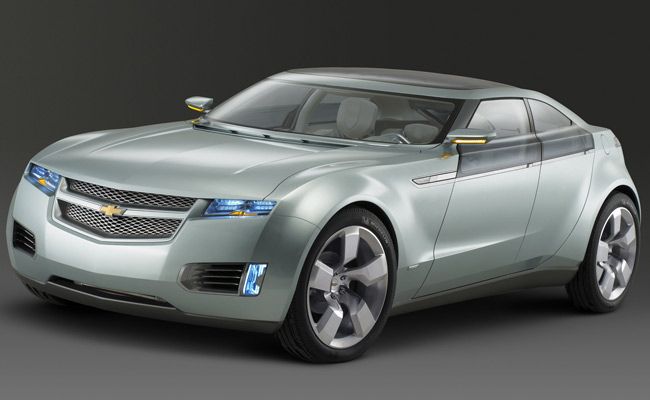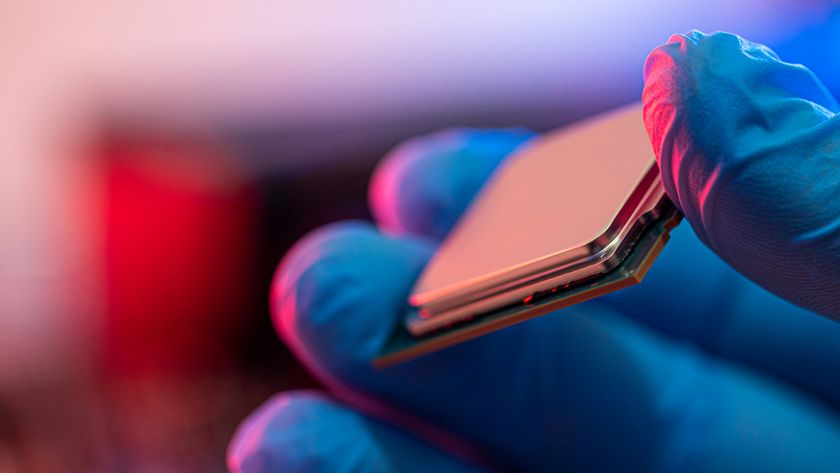2011 Tech Trends That Won't Happen

It's the start of a new year, and that means it's time to wade through a slew of prognostications by tech reporters and analysts about what 2011 will bring. But ABI Research believes some of the most common predictions being made won't come to pass, at least not this year. From cloud gaming to projections that the Android will eclipse the iPhone, here are few that the research firm says won't make the cut this year:
Electric cars
Electric cars will remain a novelty in 2011, according to ABI Research. This is due largely in part that the infrastructure for electric cars has not yet been built, so "range anxiety," or the fear you'll drive your electric car too far from a charging station to make it back home, will take precedence. When people start to understand how using the radio or the air conditioner in an electric car can shorten battery life even more, that fear will grow, ABI Research said in a report.
Cost is another consideration that will depress sales of electric cars: "They're not cheap to start with, but since they have some cachet as new and cool, auto dealers mark up price tags like mad, looking to gouge extra thousands from people willing to put down $1,000 or more just to get on a waiting list for the things," the research firm said.
Finding a place to recharge your car for free is also a factor.
Near Field Communication
Smartphone industry heavyweights such as RIM, Samsung, Nokia and Google have committed to bringing NFC (Near Field Communication) functionality to smartphones in 2011. Many expect that U.S. consumers will ditch their wallets and use their phones to pay at the local grocery store, at a ball game, or a gas station. Early test trials of this have shown very promising reactions from users.
Sign up for the Live Science daily newsletter now
Get the world’s most fascinating discoveries delivered straight to your inbox.
Although ABI Research believes that in the future phone payments will be extremely popular in the U.S., this won't occur in 2011.
"Today many folks do not carry cash in their wallets/purses because they know that they will be able to find a location that 'takes plastic,'" said ABI Research. "Initially, however, not every merchant took Visa, or Discover, or whichever card service the consumer was a member of. Without a majority of the banks and mobile operator agreeing to a unified approach, NFC payment systems may suffer from payment fragmentation much like that faced by credit cards in their early days.
"Getting these juggernauts to dance in sync is going to take a great deal of negotiating, time and effort."
Cloud gaming
With all the hype surrounding server-based gaming services such as OnLive, many have been quick to anoint these services as the future of gaming. Adding fuel to the fire, Nintendo recently suggested that Apple, not Sony, is its greatest competitor in the portable gaming market. While not out of the realm of possibility, this won’t come to fruition in 2011 -- or even within the next few years, ABI Research predicts.
"Game consoles and portable game players fulfill a particular set of needs and demand that are often (at least so far) inadequately satisfied by other services/devices," ABI Research said.
"Cloud-based game services could suffer from latency problems, particularly with regard to certain game types such as first person shooters. More servers are needed to address this, which will require time and resources to roll out."
2011 will be a transition year for gaming as new devices such as the Nintendo 3DS and possibly a new PSP and a new Wii hit the market. New peripherals such as Microsoft's Kinect and Sony’s Move will redefine the capabilities of this generation of consoles.
"If sales slow, it won't be because competition is beating them, but because this generation of consoles is maturing," the report said. "While there’s still plenty of room for growth, we must remember that previous game console generations usually lasted five or six years; the Xbox 360 just turned five this year. The PS3 and [Xbox] 360 (and possibly even the less advanced Wii) look to have a few more years left in their lifecycles."
iPhone vs. BlackBerry, Android
Although some believe the iPhone will kill the BlackBerry in business, or enterprise use, ABI Research said it won't happen mainly because the smartphone security features in BlackBerry devices is proven.
"The iPhone is flawed from a security perspective and cannot support some of the mission-critical behind-the-firewall apps that are seen on the RIM platform," it said. "The iPhone will make inroads in personal use in the enterprise, as will Android-based products, but the corporation sensitive to security breaches will keep to the BlackBerry path. Just look to the tightening of information control in the financial vertical to see where this is going enterprise-wide."
The research firm also does not give credence to predictions that Androids will eclipse Apple in 2011.
"Licensing ideology aside, Android’s primary value proposition is a less expensive and more flexible alternative than Microsoft’s Windows Mobile for handset OEMs," it said. "There are no improved technology or standout features that make products significantly more attractive than the iPhone. Handset OEMs will continue to release an abundance of models running Android, most without strong technology or feature differentiation."
Google TV
Although some experts may disagree, ABI Research believes that Google TV won't expire in 2011. Yes, Google TV is still in beta and despite Google’s attempts to reach out to the networks, it has failed to provide PC-levels of content on the Google TV platform.
"We are dealing with television networks sitting on big cash-cows (cable networks) that are afraid of giving customers choices," ABI Research said. "For several years they have blocked every attempt to liberate content to the TV."
However, many are comparing Google TV to a PC, not to a TV.
"Compared to other connected TV platforms, Google TV offers search – though not refined enough yet – and will open a big bazaar of an app store early next year. This means that if search doesn't organize everything the way you like, there’s an app for that," the report said.












